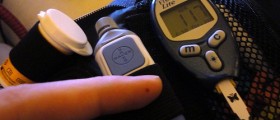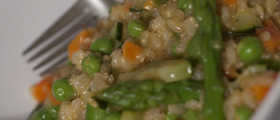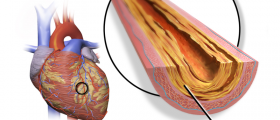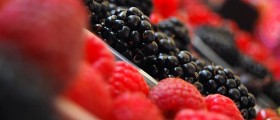
Heart disease is the number one cause of death in the United States. It cannot always be prevented, as there are other factors involved and not just a healthy lifestyle and nutrition, but the risk of heart disease can be reduced. Nutrition plays a very important role in prevention.
Cholesterol is commonly known as one of the major causes of heart disease. But modern research indicates that things are not that simple and that the worst foods for the human heart are those that have been hydrogenated, like margarine.
Everybody knows that sugar in excessive amounts should be avoided, but few are aware that sugar has a direct negative effect on the heart. It raises the serum cholesterol and triglyceride levels and makes blood platelets sticky, which is dangerous because it may cause blood clots and subsequently a heart attack or a stroke. Sugar also increases insulin and insulin is believed to help the cholesterol stick to the walls of blood vessels.
Eggs have a bad reputation as far as heart disease prevention is concerned. This is because eggs contain cholesterol and it only makes sense that they should be avoided. However, cholesterol intake from food has little to do with the actual serum cholesterol. Furthermore, egg yolk contains choline, which helps the body to dissolve fat and cholesterol.
Onions and garlic contain compounds that prevent blood clotting and hypertension and have cholesterol-reducing abilities.
Fish and fish oil are traditionally associated with the prevention of heart disease. This goes especially for fatty fish like salmon and tuna. A good alternative for fish is Spirulina, a blue-green algae, or flax seed, or its oil. Flax seeds are very healthy, but, if taken it their natural form and not as oil or other product, they must be ground before consumption, otherwise they might spoil or lose their beneficial qualities.
Fiber is not only good for a healthy digestive tract, it is also very beneficial to the heart. A Harvard University Medical School study showed that high fiber intake reduces the risk of heart attack even if the cholesterol levels are high. Fiber is also believed to prevent breast cancer, colon cancer, and diabetes. Fiber is found in fresh vegetables and fruits as well as in whole grains. Apple pectin, grapefruit pectin, oats, chickpeas and other legumes are excellent sources of fiber.
Along with a healthy diet, some supplements can be added in order to prevent heart disease. Persons who are at the risk of heart disease should consider taking niacin, Vitamin C, lecithin and selenium. However, a doctor should be consulted before taking these supplements, so they can determine which ones should be taken and in what amount.

















Your thoughts on this
Loading...